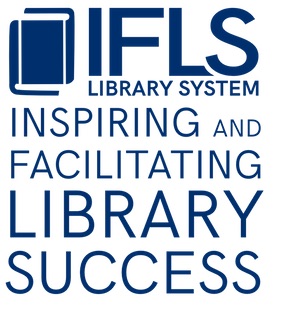It’s the middle of the summer, a time when many libraires are in the thick of increased programming, larger numbers of kids and teens in the building, and when general mayhem and chaos is high! In case you are re-thinking things, as many people do in the middle of summer, I wanted to provide some food for thought.
One big goal for a lot of libraries in the summer is to encourage reading and learning throughout the summer. There are so many ways to do that! Some libraries are all-in on prizes, reading logs, and setting goals. Some provide a small weekly prize to all participants who meet a goal, others provide a chance to enter into drawings for grand prizes, and some do both! Some libraries have decided to scale back on record-keeping requirements and prizes for a variety of reasons.
I think there are a lot of libraries doing a lot of great work, and I’m not here to tell you you should do one thing or another, or that there is only one right way to do things. However, there are some important things to think about with regard to prizes, and I hope you will think about it more!
Here are some things to consider when you are thinking about prizes:
- FIRST: think about your goals for your summer library program. Make sure whatever you are doing aligns with those goals!
- There is quite a bit of research (see some sources below) that suggest that offering a tangible reward for something (like a prize for reading) can
- Focus attention on the prize instead of the reading
- Progress and effort can be de-emphasized in favor of the final result
- When there is little intrinsic motivation to do something (like read), extrinsic rewards can be helpful (some parents and kids say that is the reason they continue to read during the summer)
- These rewards work best when they are ones that kids find interesting and relevant to the task (a book they choose themselves)
- Several studies show that kids who receive rewards for reading subsequently have less interest in reading–unless the reward is a book they get to choose themselves.
- A few things that seem to make a difference in improving motivation include:
- Autonomy, for instance, letting kids choose their goals and letting them choose their reading materials and/or learning activities and help finding things that they are interested in
- Connection, for instance, collaborating together for a prize to be enjoyed by all (new equipment for the library that benefits all kids, a big party/performer, a donation to an organization they are excited about, a big sculpture or display they get to add to to when they read) or a warm connection with a library staff person about what they are reading/learning or spin a prize wheel to get to do something goofy with a library staff person
- A few other things to consider about prizes
- Budget impact and potential donors
- If you give them, making sure prizes are accessible to all. Do kids with food allergies get to partake of the food-related prizes? Do kids who don’t have a parent who can take them to an ice cream shop or museum or other experiential prize get to actually use those prizes?
- If you only give grand prizes and the most avid readers are always the ones that win, what does that do for motivation for the struggling reader?
- Some resources to dig deeper:
- Summer Reading Prizes and Accessibility
- Is Your Summer Reading Program Equitable?
- Enticing Summer Reading Alternative Programming for Kids Who Hate to Read
- A Hook and a Book: Rewards as Motivators in Public Library Summer Reading Programs
- Providing Proximal Rewards: Rethinking Reading Rewards and Motivation form May/June 2024 Reading Teacher (available on BadgerLink)
